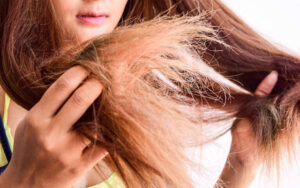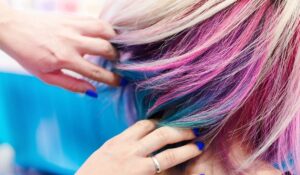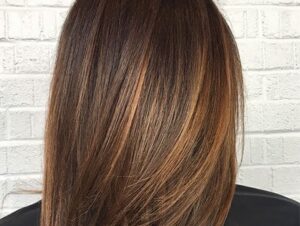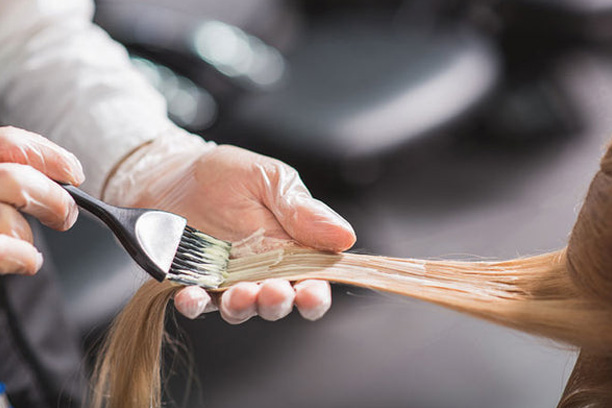Did you know that ammonia-free hair dye can minimize early bloating and itching while also being ammonia-free? Did you know there are tips on achieving fantastic color with the best hair care products? Find out all the answers in this post.
If you’re looking to color your hair at home, you may wonder if ammonia-free hair dye is the way to go.
Ammonia is a common ingredient in many hair dyes, but it can be harsh on your hair and scalp.
Ammonia-free hair dyes are a great alternative if you’re looking for a gentler option.
Ammonia-free hair dyes work just like regular hair dyes. The dye’s color molecules penetrate the hair shaft’s cortex and bond with the keratin proteins. This process is what gives your hair its new color.
Biggest benefits:
One of the most significant benefits of using an ammonia-free hair dye is that it’s gentler on your hair and scalp. Ammonia can be harsh and dry, so an ammonia-free option may be better for you if you have sensitive skin or scalp.
Another benefit:
Another benefit of using an ammonia-free dye is that it doesn’t produce as strong of a smell. Ammonia can have a strong, unpleasant odor, so an ammonia-free shade may be suitable for you if you’re looking for a more pleasant experience.
Dangers of using ammonia in hair dyes:
Our hair loses its natural pigment and begins to gray as we age. Many of us turn to hair dyes to keep our hair looking young and vibrant.

Unfortunately, most commercial hair dyes contain a chemical called ammonia. Ammonia is used in hair dyes because it helps the synthetic color molecules penetrate the hair shaft.
Damage your hair and health:
However, ammonia can be highly damaging to both your hair and your health. When ammonia enters your body, it can cause respiratory problems, skin irritation, and even burns.

Hurt your lungs and throats:
Inhaling ammonia can irritate your lungs and throat, and long-term exposure has been linked to bronchitis, asthma, and other respiratory problems.
Skin irritation:
Ammonia can also cause skin irritation and burns. If you have ever had a bad reaction to a hair dye, it was probably due to ammonia.
Ammonia is also very damaging to your hair. It strips away the natural oils that protect your strands, leaving them dry and brittle. It can also change the structure of your hair, making it more vulnerable to breakage.
If you use hair dyes containing ammonia regularly, you will likely notice that your hair becomes thinner and more difficult to manage over time.
How to identify a quality ammonia-free hair dye?
One way to tell if a hair dye is a good quality is to look at the ingredients list. A good quality ammonia-free hair dye will generally have fewer ingredients, and those ingredients will be natural and gentle on the hair.
Review:
Another way to tell if a hair dye is of good quality is to check reviews online from other customers who have used it. Reading first-hand accounts can give you a good idea of whether or not a particular product is worth trying.
Ultimately, finding a quality ammonia-free hair dye comes down to researching and reading labels carefully. By taking the time to do this, you can be sure that you are using a product that will be gentle on your hair and won’t cause any damage.
What alternatives to ammonia hair dye, and how do they work?
As we all know, ammonia is a common ingredient in hair dyes. But did you know that there are alternatives to ammonia hair dye?
And these alternatives can be just as effective (if not more so). Let’s look at some of the most popular options for ammonia hair dye and how they work.
Henna:
First, let’s talk about henna. Henna is a plant-based powder that can be used to color hair. When mixed with water, it forms a paste that can be applied to the hair.
Henna penetrates the hair shaft and helps to seal in color. It’s a great alternative to ammonia hair dye because it’s gentle and won’t damage your hair.
Plus, it can condition your hair while it colors it!
Coffee:
Next, we have coffee. Yes, coffee! Coffee can be used to darken hair color. To use coffee as an alternative to ammonia hair dye, brew a strong pot of coffee and let it cool.
Then, apply it to your damp hair and let it sit for 30 minutes before rinsing it. The coffee will help to darken your hair color and add shine.
Apple cider:
Next, we have apple cider vinegar. Apple cider vinegar is another excellent alternative to ammonia hair dye because it can help to lighten your hair color.
To use apple cider vinegar as an alternative to ammonia hair dye, mix apple cider vinegar and water in a bowl.
Types of Ammonia-Free Hair Dyes:
There are two types of ammonia-free hair dyes: temporary and permanent.
Temporary hair dye:
Temporary hair dyes do not penetrate the hair shaft, so they only deposit color on the hair’s surface.
This type of dye is typically used to achieve a short-lived, unique look or to add dimension to natural hair color.

Because the color does not last long and only coats the outside strand, it is considered safer than permanent dyes.
Permanent hair dye:
Permanent hair dyes change the color of the hair by penetrating the shaft and altering the melanin inside.
This type of dye can be used to achieve any color or shade, but because it changes the structural makeup of the strand, it is considered more harsh and damaging than temporary dyes.

Which hair color is best with no ammonia?
There are a few different hair colors that are best with no ammonia. These include dark brown, light brown, and black. Each of these colors has its benefits and drawbacks.
For example, dark brown can be very flattering, making your hair look flat and lifeless. A light brown is a good option if you want to add some dimension to your hair, but it can also be challenging to maintain.
Black is a classic color that always looks good, but keeping your hair shiny and healthy can be challenging. Ultimately, the best choice for you will depend on your personal preferences and the condition of your hair.
How long does ammonia-free hair color last?
Generally speaking, ammonia-free hair color can last anywhere from 4 to 6 weeks. However, a few factors can affect how long the color will stay vibrant.
For example, those with darker hair may find that their color fades faster than lighter hues. Additionally, those who wash their hair frequently may notice the color fading sooner.
To extend the life of your ammonia-free hair color, use a sulfate-free shampoo and avoid heat styling tools whenever possible. With proper care, you can enjoy beautiful, healthy-looking hair for weeks!
Does ammonia-free dye lighten hair?
No, ammonia-free hair dye does not lighten the hair. It is typically used to darken hair or cover grays. Ammonia-free hair dye works by depositing color onto the hair shaft. The amount of color deposited depends on the shade you choose.
How to Choose the Best Ammonia-Free Hair dye?
There are a few things to remember when choosing the best ammonia-free hair dye for your needs.
Here are a few tips:
1. Consider your hair type. Ammonia-free hair dyes are designed for different hair types. If you have damaged or chemically treated hair, look for an ammonia-free shade designed explicitly for that hair type.
2. Read the labels carefully. All hair dyes contain chemicals, so it’s essential to read the labels carefully and choose a product that is right for your hair type and needs.
3. Do a patch test before using any new hair dye. This will help you determine if you’re allergic to any ingredients in the product.
4. Follow the instructions carefully. Be sure to follow the instructions on the package carefully to avoid damaging your hair or skin.
FAQs:
What is the safest brand of hair color:
When it comes to hair color, there are a lot of different brands on the market. But which one is the safest?
Well, that depends on your scalp and hair type. Some people may be able to use any brand without any problems, while others may find that certain brands cause irritation or dryness.
If you’re concerned about safety, it’s always best to consult a professional stylist or dermatologist to find out which brands would be best for you. They can help you identify any potential allergies or sensitivities you may have.
Does ammonia cause GREY hair?
No scientific evidence supports the claim that ammonia causes gray hair. However, some believe it can be because of its bleaching properties.
If you’re concerned about gray hair, try avoiding using products that contain ammonia. Talk to your doctor or a dermatologist if you have concerns about your hair health.
Conclusion:
After reading this article, you should understand ammonia-free hair dyes and why they are a safer alternative to traditional hair dyes.
Ammonia-free hair dyes are less likely to cause irritation or damage your hair and can be just as effective as traditional hair dyes.
If you are looking for a safe and gentle way to color your hair, consider using an ammonia-free hair dye.
